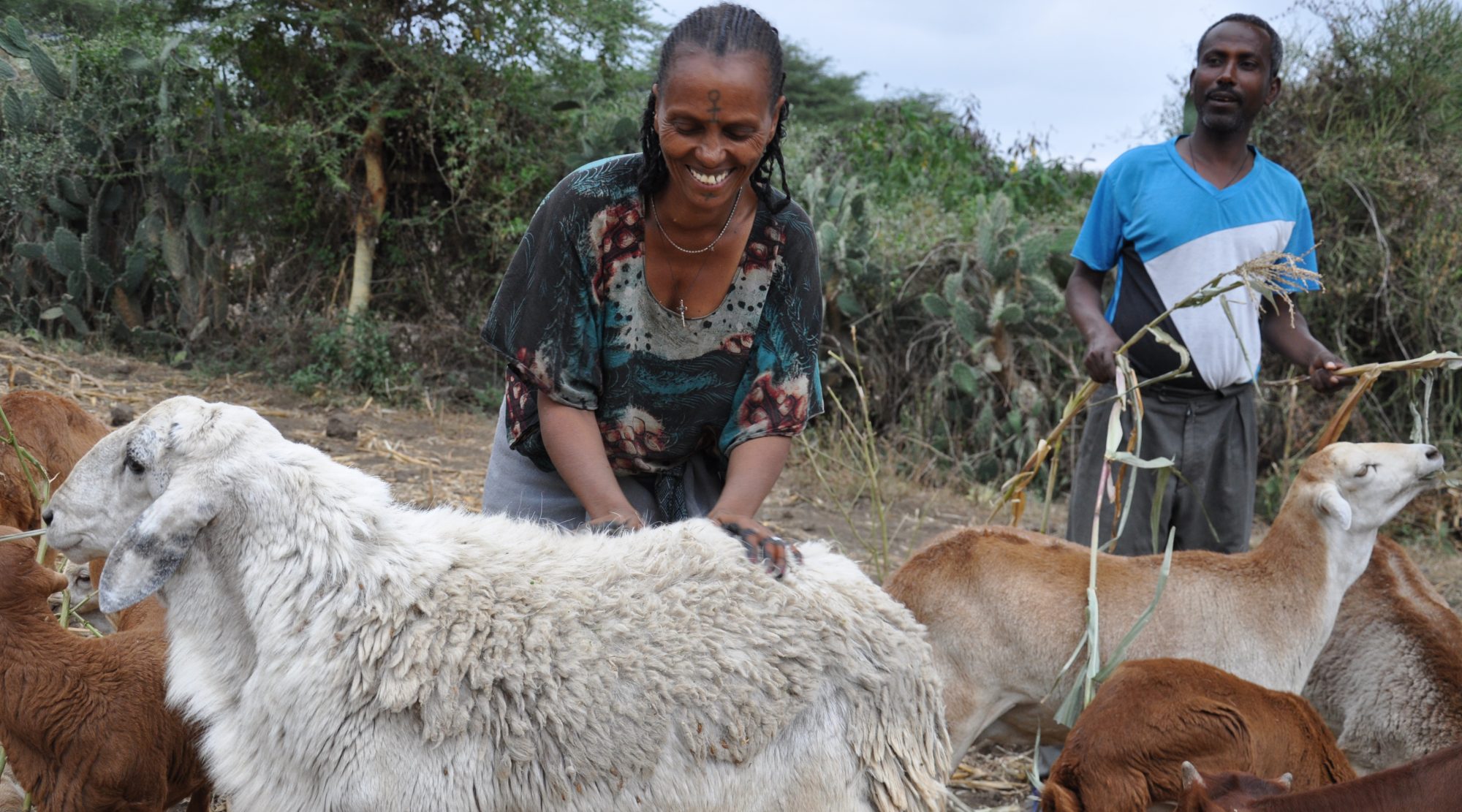Participatory Scenario Planning Helps Households Cope with Weather Shocks
Chekole Halfom, 43 year, lives in Alamata Woreda of Tigray Zone. A small scale farmer and father of five, lost his entire sorghum crop during the drought of 2015. This caught him by surprise and he was forced to sell livestock he obtained during the USAID-funded Graduation with Resilience to Achieve Sustainable Development (GRAD) Program support.
Chekole’s story is all too common in rural Ethiopia. Without access to timely weather information, small scale farmers are unable to plan and adapt to the effects of climate change, from severe drought to delayed rain, and even heavy rain and flooding, which can significantly affect their harvests and livelihoods. Households need to make appropriate livelihood decisions to become resilient in the face of climate uncertainty. While long-term decisions include the identification and selection of appropriate adaptation strategies in the face of climate change, short-term decisions are based on reasonably accurate predictions of the next growing season.
For this reason, the Livelihoods for Resilience Activity has introduced the Participatory Scenario Planning (PSP) tool. PSP is a multi-stakeholder approach in which communities, the meteorological service, traditional forecasters, local government stakeholders, and local researchers work together towards a collective interpretation of seasonal weather forecasts, including a consideration of associated uncertainty. Consensus is reached on locally relevant predications that are used by farmers for decision making and planning. PSP forums are convened several times a year after a seasonal forecast is made available by meteorological services.
These forums allow community members to contribute their local knowledge of the forecast in their area, and to provide their review of the current status of livelihood vulnerability, food security, vegetation cover, and livestock. Government sector services also contribute technical expertise on the implications of different forecast scenarios. This sharing of knowledge between communities, sector services, the private sector and NGOs enable all stakeholders to better plan activities based on likely opportunities, risks and outcomes in agriculture, disaster risk reduction, adaptation and resilience. Through participation in the PSP forums, meteorological services also gain new relevance and value through enhanced communication with stakeholders and communities.
The PSP forums prepare a set of recommendations of practical actions that can be easily communicated to Village Economic and Social Association (VESA) members. The project frontline staffs share climate advisories to VESAs so that members can jointly analyze and discuss the effects of climate change on their livelihoods. The VESA members make informed decisions about short term locally relevant risk management strategies during every season which is part of the process to enhance their anticipatory capacity.
